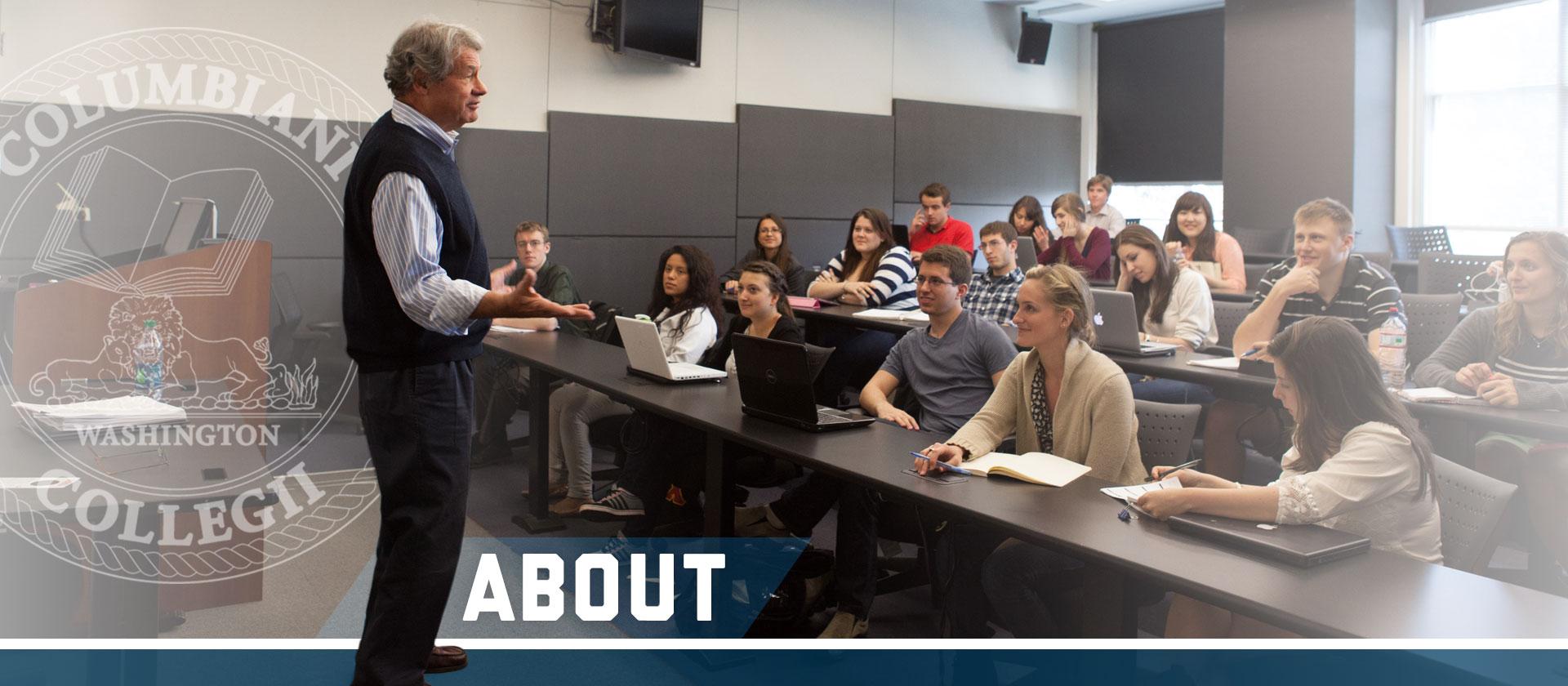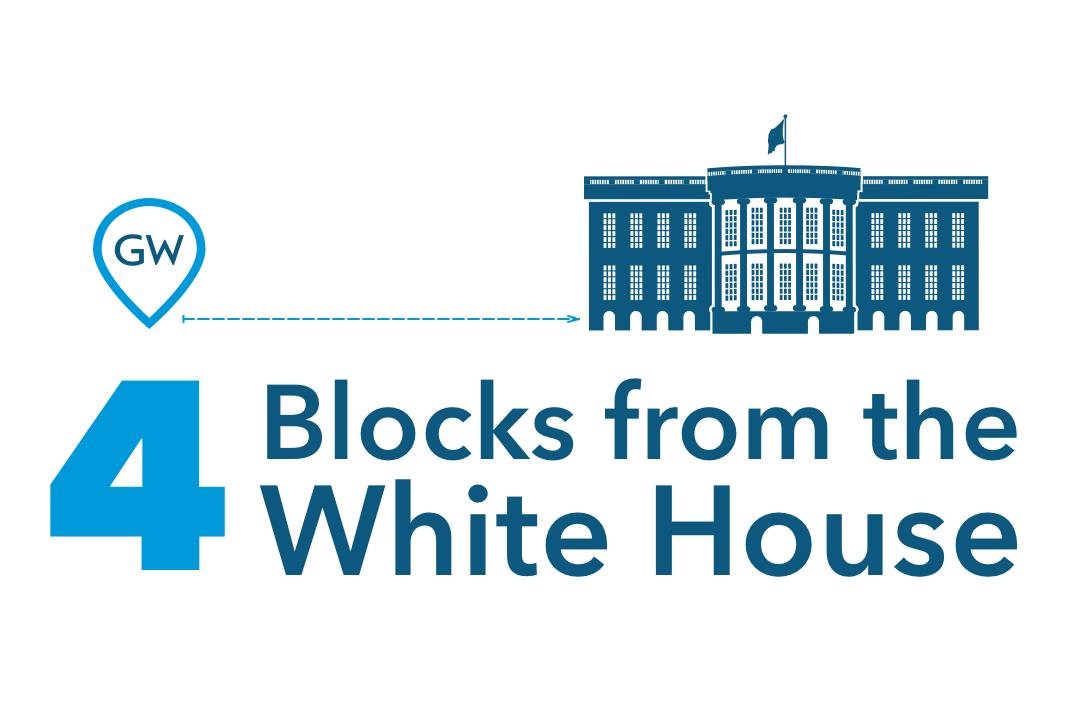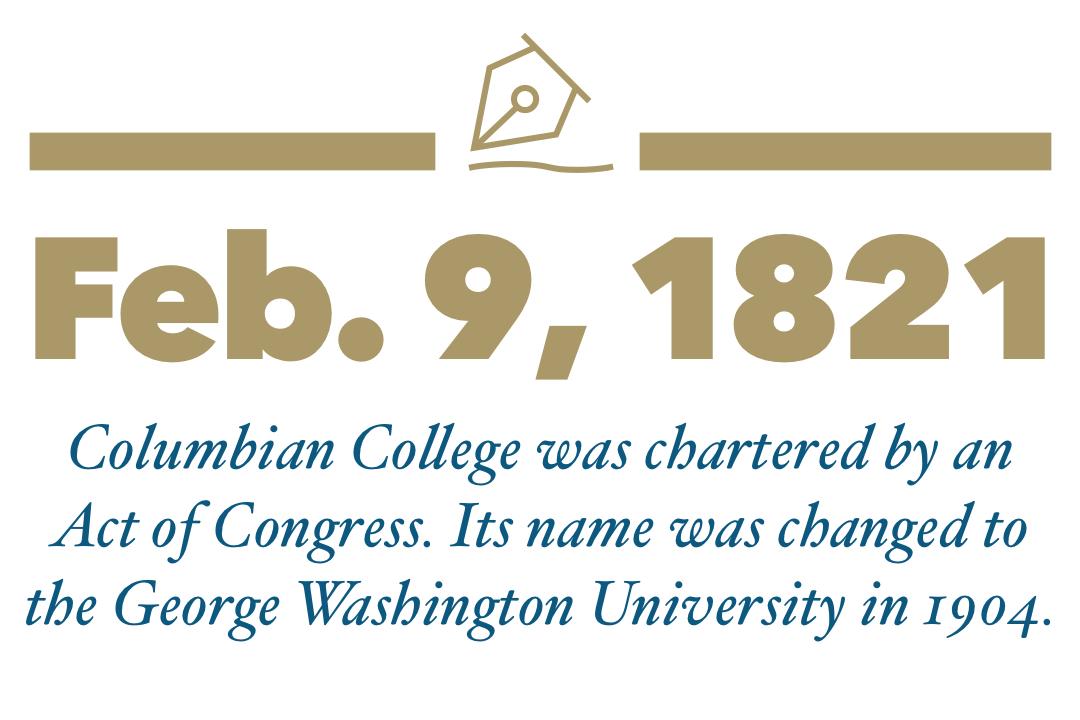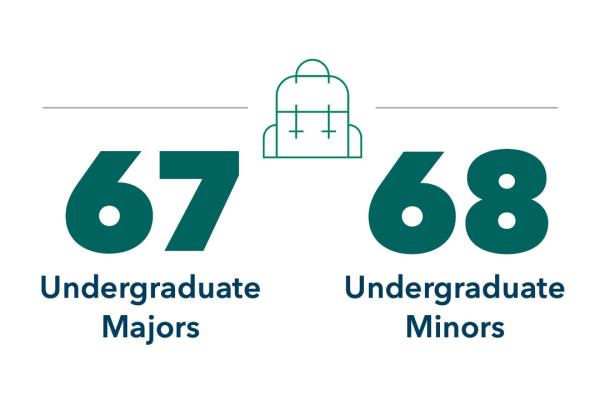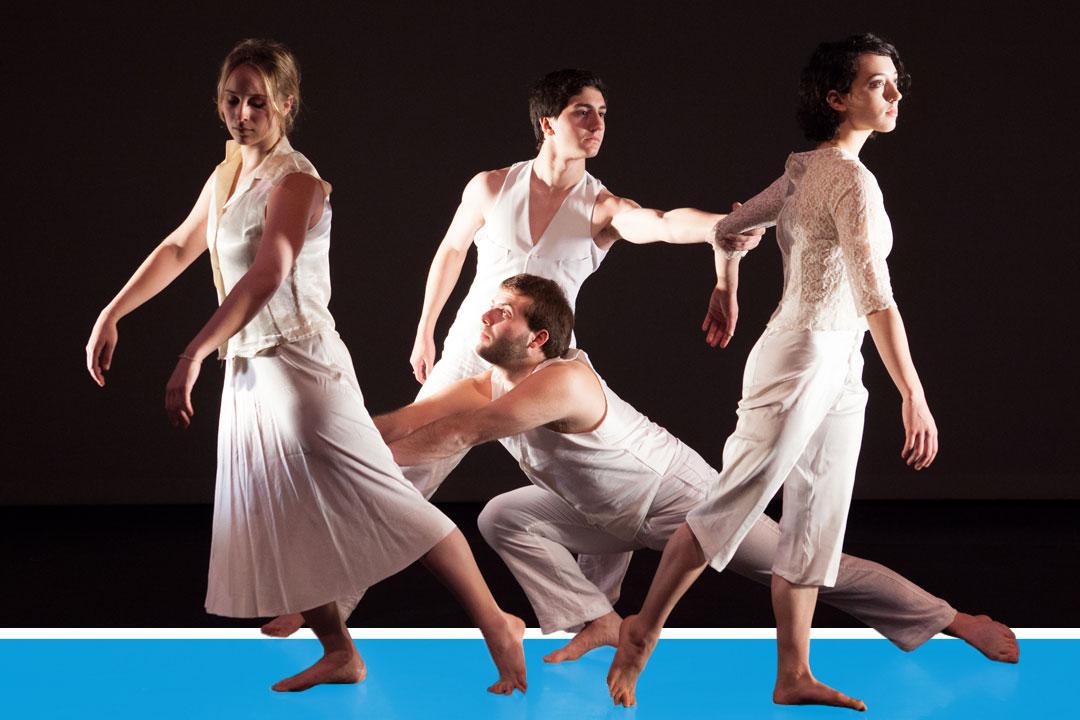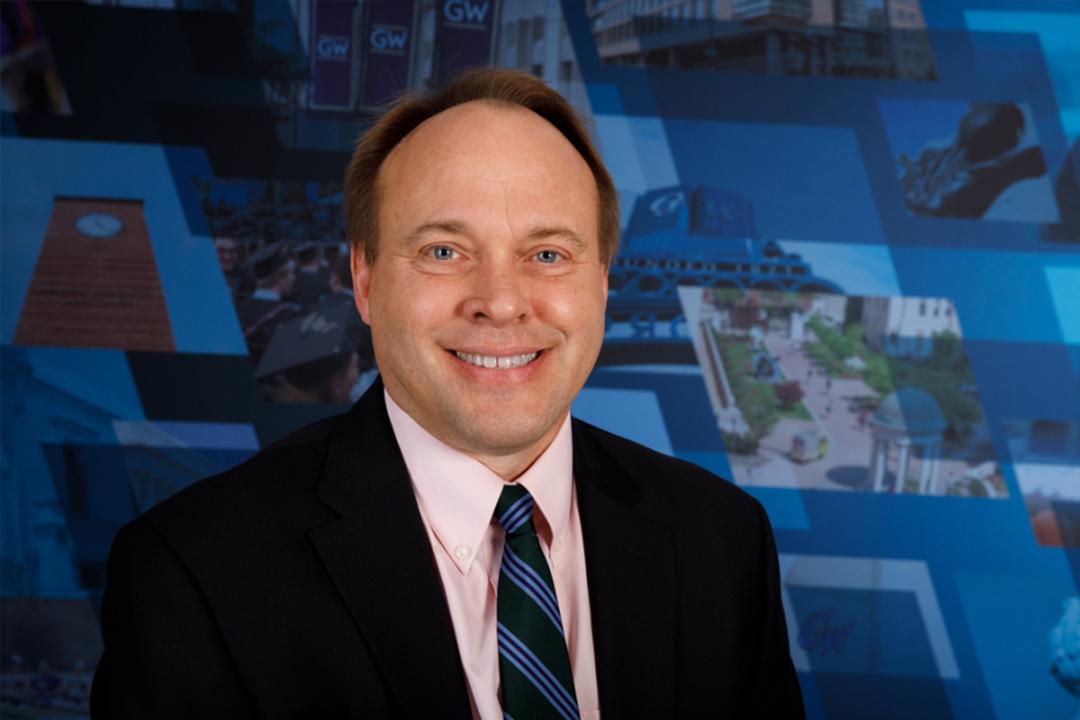About Columbian College
Our scope, our people and our history make Columbian College
a center of learning like
no other.
About Columbian College
The Columbian College of Arts and Sciences is GW’s intellectual and creative backbone—a place where research thrives, critical thinking is encouraged, collaboration is constant and real-world training goes hand-in-hand with learning.
Our Scope
Columbian College is GW’s largest and most comprehensive academic unit. It's home to 42 academic departments, three affiliated schools, nearly 8,000 undergraduate and graduate students, 14 research centers and more than 490 full-time faculty—including Fulbright and Guggenheim scholars, award-winning artists, cutting-edge scientists and critically acclaimed authors.
Our Academics
Curious, socially aware and ready to make a difference, Columbian College students can explore and pursue academic interests across a broad spectrum of fields that include the arts, politics, policy, natural science, social science, quantitative analysis and the humanities. Our faculty are dedicated mentors who guide our students to think, to ask questions and to use their knowledge in meaningful ways.

Areas of Study
The Arts: Igniting the Creative Spirit
The vibrant cultural and artistic communities of Washington, D.C., integrated with our top-tier programs in arts and design, make CCAS one of the most stimulating places to learn, listen and engage in creative scholarship. World-class cultural venues are just steps from campus, offering students unparalleled opportunities to inspire their work. Our Corcoran School of the Arts and Design further enhances our vision to bridge creative expression and practical application with a liberal arts education.
Policy: Decision-Making in the Real World
Situated in the nation’s capital—at the intersection of power and media—we attract top faculty and students seeking to study and report on decision-making as it happens. Our proximity to the halls of government, and close ties to people within it, enable us to enjoy exceptional networking and research opportunities through our renowned School of Media and Public Affairs and consistently top-ranked Trachtenberg School of Public Policy and Public Administration.
Natural Science: Seeking Answers to Big Questions
The answers to the most challenging questions of the modern era come from our chemists, physicists and biologists through cutting-edge research funded from prominent agencies including the National Institutes of Health and National Science Foundation. And, through GW’s investment in new and innovative lab and classroom space, our students have to the opportunity to engage in all stages of the discovery process at our Science and Engineering Hall.
Social Science: Studying People and Their Interactions
Faculty and students in our social and behavioral sciences programs study the origins of humans, how we have evolved, the way we interact and how we are moving forward. The knowledge we create through such disciplines as anthropology, economics, organizational sciences, communications, psychology and sociology sheds new light on human evolution and provides insight on how to improve the lives of future generations.
Quantitative Analysis: Understanding our Data-Driven World
In an increasingly data-driven world, the demand for analytical skills is growing exponentially in every sector of the economy and all levels of government. Our quantitative programs in financial and applied mathematics, statistics and data science are preparing the next generation of analytical experts with both the practical and theoretical knowledge needed to extract actionable solutions through sophisticated processes and techniques.
The Humanities: Interpreting our Global Society
The humanities encompass the core academic disciplines for understanding the human world. Students develop the ability to form, articulate, debate and revise interpretations—in essence, to think critically—about issues of historical, social and cultural importance. This rigorous intellectual training is enriched by our access to unique resources in the nation’s capital, including archives, historical venues, embassies and museums.
Our People
"Teaching is the joy of my life. Our challenge as educators is to help our students see politics, freedom and justice as global concepts. We have to get our students to think and know more about the world—because knowledge leads to action."
Xolela Mangcu
Professor of Sociology


